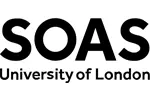

| The award | How you will study | Study duration | Course start | Domestic course fees | International course fees |
|---|---|---|---|---|---|
| MA | Full-time, Part-time | 1 - 3 year | find out | GBP 11980 per year | GBP 23400 per year |
The MA Anthropology of Food programme offers you the opportunity to explore historically and culturally variable foodways, from foraging to industrial food, from Asia, Africa and the Middle East to Europe and the Americas. You will examine the roles that food classification, production, distribution, exchange, cooking and eating play in social organisation, differentiation, religious practice and cultural identity and in mediating our relationships with non-human beings and surroundings. You will also explore the transregional and transnational movements of foods and culinary practices and the role of food in human migrations, as well as the formation of regional and national cuisines.
As a student on the MA in Anthropology of Food, you will study the passage of food from plant to palate, and examine who benefits, and who suffers, from contemporary modes of food production, exchange, preparation and consumption. You will address debates on the impact of contemporary food systems on food safety, dietary health, agrarian livelihoods and environmental sustainability and examine concerns over the alleged demise of family meals, traditional food knowledge and cooking skills.
Food activism, including digital food activism and movements toward sustainable food production and against food waste, and movements advocating fair trade, veganism and vegetarianism are explored in diverse cultural contexts. You will also address initiatives to protect local and artisanal foods, including promotions of heritage foods and food tourism in rural development and nation-building.
The MA programme in Food Anthropology is run in collaboration with the SOAS Food Studies Centre, an interdisciplinary research centre housed in the Department of Anthropology and Sociology. Students on the MA programme attend the Centre's research seminar (the 'SOAS Food Forum') and other Centre events. The SOAS Food Studies Centre offers information about events, including links to recordings of SOAS Food Studies Centre Distinguished Lectures and other resources.
This MA programme has a first-rate graduate employability record, with graduates moving on to find employment in food-related government ministries, international organisations, development and media agencies, or non-governmental associations. Other alumni work in the food, hospitality and tourism industries.
Learn more about Anthropology of Food, MA - at SOAS University of London
Visit course webpageWe will consider all applications with a 2:2 (or international equivalent) or higher in social science of humanities subject. In addition to degree classification we take into account other elements of the application such as supporting statement. References are optional, but can help build a stronger application if you fall below the 2:2 requirement or have non-traditional qualifications.
Curious minds shouldn’t be hemmed in by financial barriers.
At SOAS we wish to support all students to fulfil their potential. That’s why we offer a range of scholarships, bursaries, and awards to support undergraduate students through their studies.
You can find more information on our scholarships, and how to apply on the SOAS website.
There are 151 other courses listed from SOAS University of London. A selection of these are displayed below:
SOAS University of London main campus location is shown on the map below:
See other universities in London
Find out more about studying in the United Kingdom